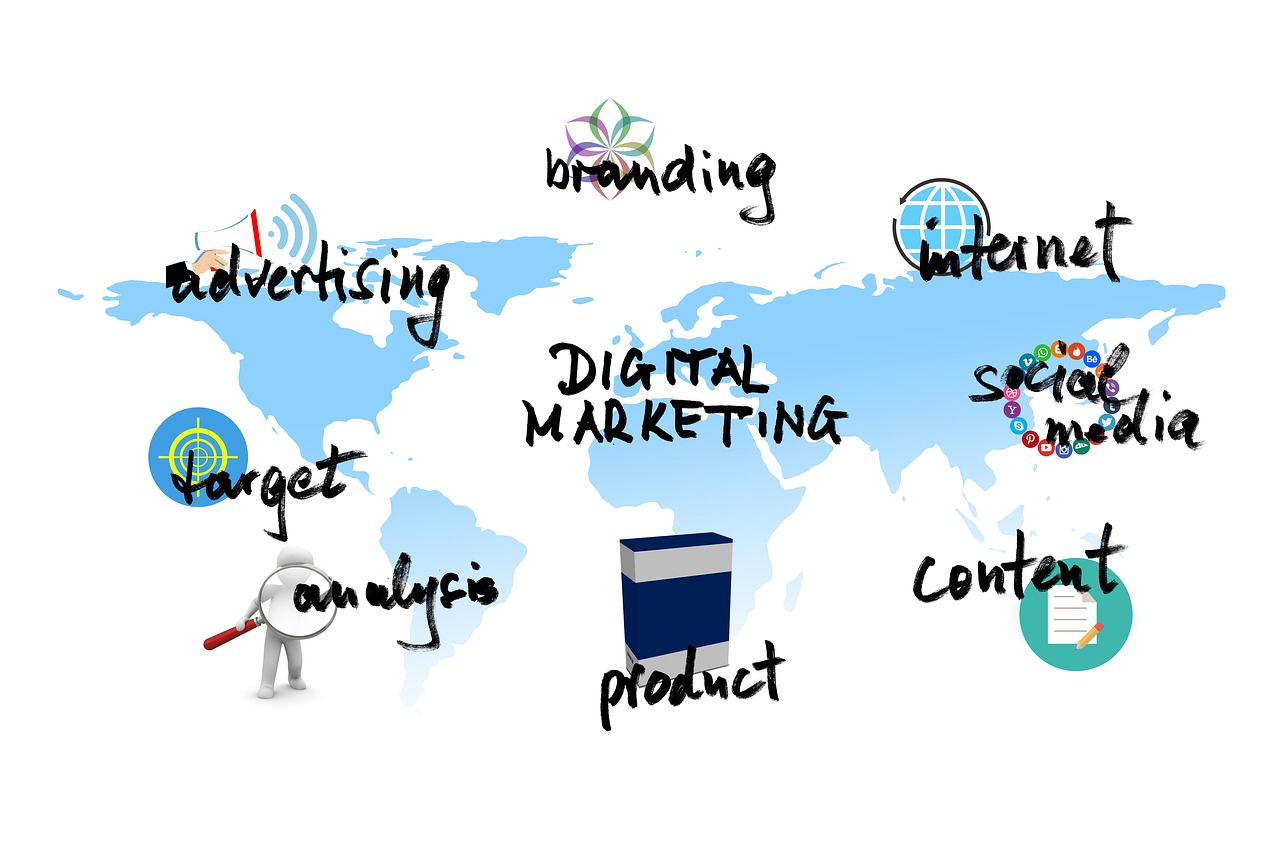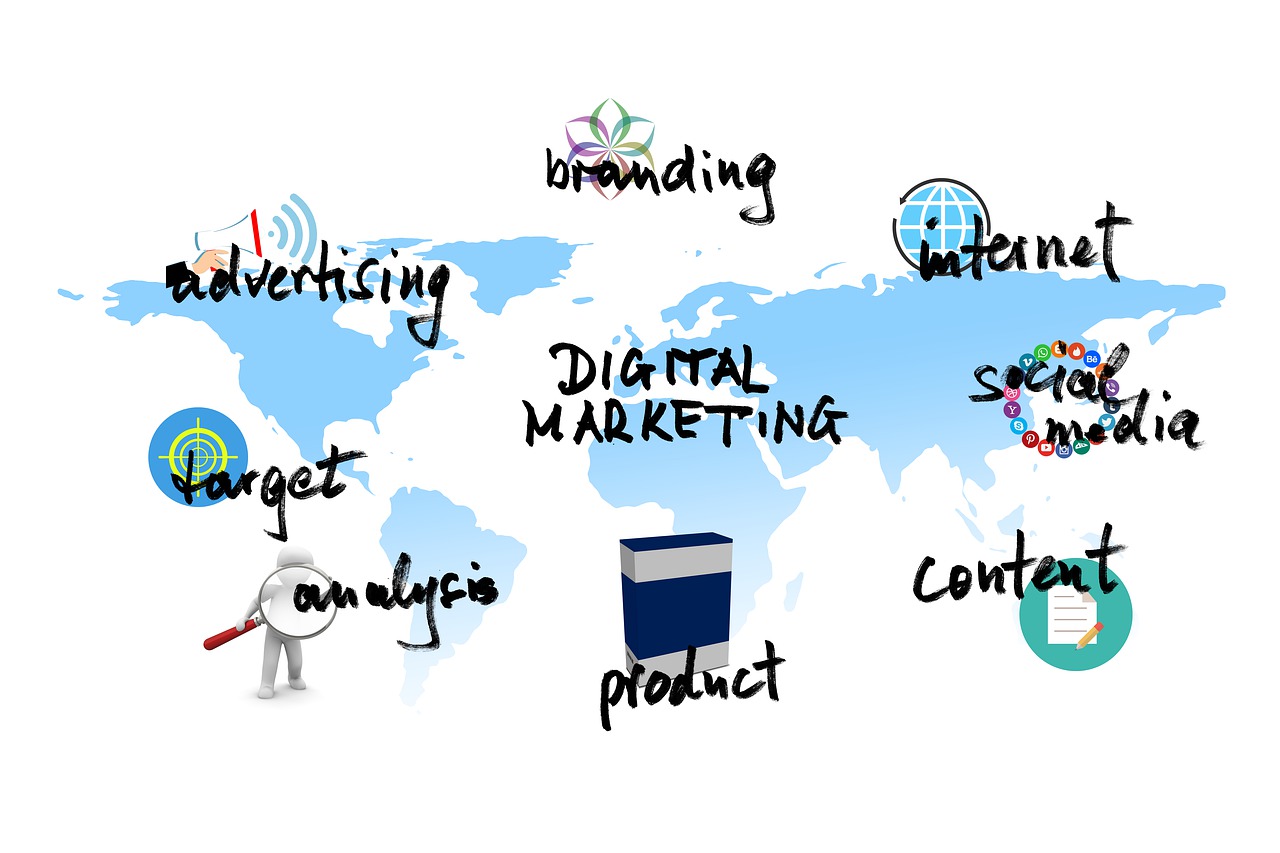
Imagine this: you’ve just finished writing your eBook, pouring countless hours of expertise and creativity into its pages. Now comes the exciting part – getting your masterpiece into the hands of eager readers. But how do you make sure your eBook stands out in a saturated market? The answer lies in content marketing. In this article, we’ll explore the pivotal role that content marketing plays in selling eBooks, and how it can help you connect with your target audience, build trust, and ultimately boost your eBook sales. So, fasten your seatbelt and get ready to discover the power of content marketing in the world of eBook sales.
Understanding Content Marketing
Definition of content marketing
Content marketing is a strategic approach to marketing that involves creating and distributing valuable, relevant, and consistent content to attract and engage a specific target audience. The purpose of content marketing is to drive profitable customer action by providing valuable information and insights to potential customers, building trust and loyalty, and ultimately leading to sales conversions.
Importance of content marketing in the digital age
In today’s digital age, where customers are constantly bombarded with advertisements and promotional content, content marketing has emerged as a powerful tool for businesses to cut through the noise and connect with their target audience. It allows businesses to establish their authority, build brand awareness, and nurture relationships with potential customers in a more personalized and authentic manner. Content marketing is essential for businesses to stay competitive in an overcrowded digital landscape and build long-term customer loyalty.
Benefits of Content Marketing for eBook Sales
Building brand awareness
Content marketing is a highly effective way to build brand awareness for eBook sellers. By consistently producing valuable and engaging content related to their niche or industry, eBook sellers can position themselves as thought leaders and gain exposure among their target audience. By providing informative and valuable content, eBook sellers can establish credibility and build trust, which can ultimately lead to more eBook sales.
Establishing expertise and credibility
Content marketing allows eBook sellers to demonstrate their expertise and establish credibility in their respective niches. By consistently sharing insightful and valuable content related to their field, eBook sellers can showcase their knowledge and expertise, positioning themselves as go-to sources of information. This helps in building trust with potential customers, making them more likely to consider purchasing eBooks from these sellers.
Driving organic traffic to sales pages
One of the key benefits of content marketing is its ability to drive organic traffic to sales pages. By creating and optimizing content with relevant keywords, eBook sellers can improve their search engine rankings and attract highly targeted traffic to their sales pages. This organic traffic is more likely to convert into eBook sales, as it consists of people actively searching for information or solutions related to the eBooks being sold.
Generating leads and building an email list
Content marketing provides eBook sellers with an opportunity to generate leads and build an email list, which can be crucial for long-term relationship building and sales conversion. By offering valuable content such as ebooks, whitepapers, or exclusive guides in exchange for email addresses, eBook sellers can capture interested leads and nurture them through targeted email marketing campaigns. This helps in building a loyal customer base and increasing the chances of repeat eBook sales.

Creating Compelling eBook Content
Identifying target audience and their needs
To create compelling eBook content, it is essential to first identify the target audience and their needs. Conducting market research, analyzing competitor offerings, and understanding the pain points and challenges of the target audience can help in creating content that resonates with them. By addressing their specific needs and providing valuable solutions, eBook sellers can attract and engage their target audience effectively.
Choosing relevant and engaging topics
To capture the interest of the target audience, it is crucial to choose relevant and engaging topics for eBook content. Topics should be aligned with the interests and preferences of the target audience, as well as with the niche or industry in which the eBook seller operates. Conducting keyword research, monitoring industry trends, and keeping an eye on the interests and needs of target customers can help in identifying topics that are both relevant and appealing.
Crafting high-quality and valuable content
To stand out in a crowded digital landscape, eBook sellers must focus on crafting high-quality and valuable content that provides genuine value to the target audience. This involves creating content that is well-researched, informative, and actionable. By investing time and effort into producing content that is well-written, visually appealing, and delivered in a format that resonates with the target audience, eBook sellers can create a positive impression and build trust with potential customers.
Optimizing content for search engines
To ensure that eBook content reaches a wider audience and drives organic traffic, it is important to optimize it for search engines. This involves conducting keyword research, integrating relevant keywords into the content, and optimizing meta tags and descriptions. By following best practices for on-page SEO, eBook sellers can increase the visibility of their content in search engine results and attract more targeted traffic to their sales pages.
Engaging with Your Target Audience
Utilizing social media platforms effectively
Social media platforms provide a valuable opportunity for eBook sellers to engage with their target audience directly. By creating and sharing valuable content on platforms like Facebook, Twitter, Instagram, and LinkedIn, eBook sellers can establish a strong online presence and interact with potential customers in real-time. It is important to understand the preferences and behaviors of the target audience on each platform and tailor the content and messaging accordingly for maximum engagement.
Interacting with readers through comments and discussions
Engaging with readers through comments and discussions is an effective way to build relationships and foster a sense of community around eBook content. By actively responding to comments, answering questions, and initiating discussions, eBook sellers can show their commitment to providing value and building connections with their audience. This also allows eBook sellers to gather feedback and insights, which can help in improving future content and identifying potential eBook sales opportunities.
Encouraging user-generated content and testimonials
Encouraging user-generated content and testimonials is a powerful way to involve the target audience in the content creation process and leverage social proof for eBook sales. By asking readers to share their thoughts, experiences, and success stories related to the eBook content, eBook sellers can generate valuable user-generated content that can be repurposed and shared across various channels. Testimonials from satisfied customers can also be used to build trust and credibility among potential buyers.

Promoting eBooks through Different Content Channels
Using blog posts as a promotional tool
Blogging is a highly effective content marketing strategy for promoting eBooks. eBook sellers can create informative and engaging blog posts related to their eBook topics and provide valuable insights or solutions to their target audience. By including calls to action and links to their eBook sales pages within blog posts, eBook sellers can drive traffic and increase the chances of eBook conversions. It is important to consistently publish blog posts and optimize them for search engines to maximize visibility and reach.
Creating informative videos and podcasts
Videos and podcasts offer a more interactive and engaging format for promoting eBooks. eBook sellers can create informative videos or podcasts that provide valuable content and insights related to their eBook topics. By sharing these videos or podcasts on platforms like YouTube, Vimeo, or Apple Podcasts, eBook sellers can reach a wider audience and attract potential customers. Including links to eBook sales pages or offering exclusive discounts within these videos or podcasts can further drive eBook sales.
Utilizing email marketing campaigns
Utilizing email marketing campaigns is a powerful way to promote eBooks and nurture leads. eBook sellers can create targeted email campaigns that provide valuable content, exclusive offers, or sneak peeks into upcoming eBook releases to their email subscribers. By personalizing the email content and segmenting the subscriber list based on interests or purchase history, eBook sellers can increase the relevance and effectiveness of their email marketing campaigns, leading to higher eBook conversions and customer loyalty.
Leveraging guest blogging opportunities
Guest blogging on relevant websites or platforms can help eBook sellers expand their reach and attract new readers. By contributing high-quality guest blog posts that provide valuable insights or solutions to the target audience of these websites, eBook sellers can showcase their expertise and attract potential customers. Including links to eBook sales pages within guest blog posts can drive traffic and increase eBook sales. It is important to choose reputable and authoritative websites for guest blogging to ensure maximum impact.
Harnessing the Power of SEO
Conducting keyword research for eBook promotion
Keyword research is a critical step in optimizing eBook content for search engines and driving organic traffic. eBook sellers should conduct thorough keyword research to identify relevant keywords and phrases that potential customers are likely to use when searching for information or solutions related to their eBooks. By strategically integrating these keywords into their content, meta tags, and descriptions, eBook sellers can improve their search engine rankings and increase the visibility of their eBook sales pages.
Optimizing website and sales pages for search engines
To maximize the visibility and reach of eBook sales pages, it is essential to optimize them for search engines. eBook sellers should focus on optimizing meta tags, descriptions, headings, and image alt text, making sure to include relevant keywords. Additionally, optimizing page loading speed, ensuring a mobile-friendly design, and improving overall user experience can contribute to better search engine rankings and higher organic traffic to eBook sales pages.
Building backlinks to increase visibility and traffic
Backlinks are crucial for improving the visibility and authority of eBook sales pages. eBook sellers should focus on building high-quality backlinks from reputable and relevant websites within their niche. This can be achieved through strategies such as guest blogging, collaborating with influencers or industry experts, and participating in industry forums or discussions. By acquiring backlinks from authoritative sources, eBook sellers can improve their search engine rankings, increase organic traffic, and ultimately boost eBook sales.

Collaborating with Influencers and Content Creators
Identifying relevant influencers in your niche
Collaborating with influencers can significantly expand the reach and credibility of eBook sellers. Identifying relevant influencers in the eBook seller’s niche involves researching popular bloggers, experts, or personalities who have a strong online presence and a large and engaged following within the target audience. By collaborating with these influencers, eBook sellers can leverage their reach, credibility, and influence to promote their eBooks and attract new readers and potential customers.
Establishing partnerships and collaborations
Establishing partnerships and collaborations with influencers and content creators is a mutually beneficial strategy for eBook sellers. By offering influencers exclusive access to their eBooks, providing affiliate partnerships, or co-creating content, eBook sellers can incentivize influencers to promote their eBooks and recommend them to their audience. These partnerships can help eBook sellers tap into new markets, increase their brand exposure, and drive eBook sales through the influencer’s audience.
Leveraging their reach and credibility
By collaborating with influencers and content creators, eBook sellers can leverage their reach and credibility to promote their eBooks effectively. Influencers and content creators often have a dedicated and engaged audience who trust their recommendations and opinions. By partnering with influencers, eBook sellers gain access to this audience and can leverage their credibility to build trust and increase the likelihood of eBook sales. It is important to choose influencers who align with the eBook’s niche and target audience for maximum impact.
Utilizing Paid Advertising for eBook Promotion
Running targeted ads on social media platforms
Paid advertising on social media platforms is an effective way to reach a wider audience and promote eBooks. eBook sellers can leverage targeting options provided by platforms like Facebook, Instagram, or Twitter to reach potential customers based on demographics, interests, or behaviors. By creating compelling ad campaigns that highlight the unique selling points of their eBooks and including strong calls to action, eBook sellers can drive targeted traffic to their sales pages and increase eBook sales.
Utilizing pay-per-click (PPC) advertising
Pay-per-click (PPC) advertising is another effective paid advertising strategy for eBook promotion. eBook sellers can create PPC campaigns on search engines like Google or Bing, bidding on relevant keywords to display their ads to potential customers actively searching for related information or solutions. By optimizing ad copy, landing pages, and targeting options, eBook sellers can increase the click-through rates and conversions of their PPC campaigns, leading to higher eBook sales.
Retargeting strategies for interested readers
Retargeting is a powerful strategy for reaching out to potential customers who have previously interacted with eBook content but have not made a purchase. By placing retargeting pixels on their sales pages or using email marketing lists, eBook sellers can show targeted ads to these interested readers as they browse other websites or social media platforms. This helps in staying top-of-mind with potential customers and increasing the chances of eBook conversions.
Tracking and Analyzing Content Marketing Metrics
Monitoring website traffic and conversions
Tracking website traffic and conversions is essential to measure the effectiveness of content marketing efforts. eBook sellers should regularly monitor metrics such as the number of visitors, page views, bounce rates, and conversion rates on their sales pages. This helps in identifying which content or channels are driving the most traffic and conversions, allowing eBook sellers to optimize their strategies and allocate resources accordingly.
Measuring social media engagement and reach
Social media engagement and reach metrics provide insights into the effectiveness of content marketing on these platforms. eBook sellers should track metrics such as likes, shares, comments, follower growth, and post reach on platforms like Facebook, Twitter, or LinkedIn. By analyzing these metrics, eBook sellers can identify the type of content or messaging that resonates most with their target audience and adjust their content marketing strategies accordingly.
Analyzing email open rates and click-through rates
Email marketing metrics, such as open rates and click-through rates, are important indicators of the effectiveness of email campaigns and content marketing efforts. eBook sellers should closely monitor these metrics to gauge the engagement and interest of their email subscribers. By analyzing open rates, click-through rates, and conversion rates, eBook sellers can identify opportunities for improvement, such as optimizing subject lines, personalizing email content, or segmenting the subscriber list based on interests.
Evolution of Content Marketing in the eBook Industry
Incorporating interactive and multimedia elements
As technology advances, content marketing in the eBook industry is evolving to incorporate interactive and multimedia elements. eBook sellers can now include interactive features such as quizzes, surveys, or videos within their eBooks to enhance reader engagement and provide a more immersive reading experience. By blending text with multimedia elements, eBook sellers can create compelling and interactive content that resonates with modern readers and increases the value of their eBooks.
Utilizing virtual reality and augmented reality experiences
Virtual reality (VR) and augmented reality (AR) are emerging technologies that offer exciting possibilities for content marketing in the eBook industry. eBook sellers can create VR or AR experiences that allow readers to explore the content in a more immersive and interactive way. This can include virtual tours of book settings, interactive visualizations of complex concepts, or augmented reality annotations that enhance the reading experience. By leveraging these technologies, eBook sellers can differentiate themselves and offer unique and engaging content experiences.
Targeting personalized content experiences
Personalization is a key trend in content marketing for the eBook industry. eBook sellers can utilize customer data, preferences, and behavior to deliver personalized content experiences to their readers. By leveraging technologies such as artificial intelligence (AI) and machine learning, eBook sellers can recommend relevant eBooks, offer personalized content recommendations, or tailor marketing messages based on individual reader preferences. This personalization enhances the reader experience, increases engagement, and ultimately drives eBook sales.
In conclusion, content marketing plays a crucial role in selling eBooks in the digital age. By understanding the importance of content marketing and its benefits for eBook sales, eBook sellers can effectively promote their eBooks and engage with their target audience. Creating compelling eBook content, engaging with the target audience, promoting eBooks through various content channels, harnessing the power of SEO, collaborating with influencers, utilizing paid advertising, and tracking content marketing metrics are all essential components of a successful content marketing strategy in the eBook industry. As content marketing continues to evolve, embracing emerging technologies and targeting personalized content experiences can further enhance the effectiveness and impact of content marketing efforts in the eBook industry.


